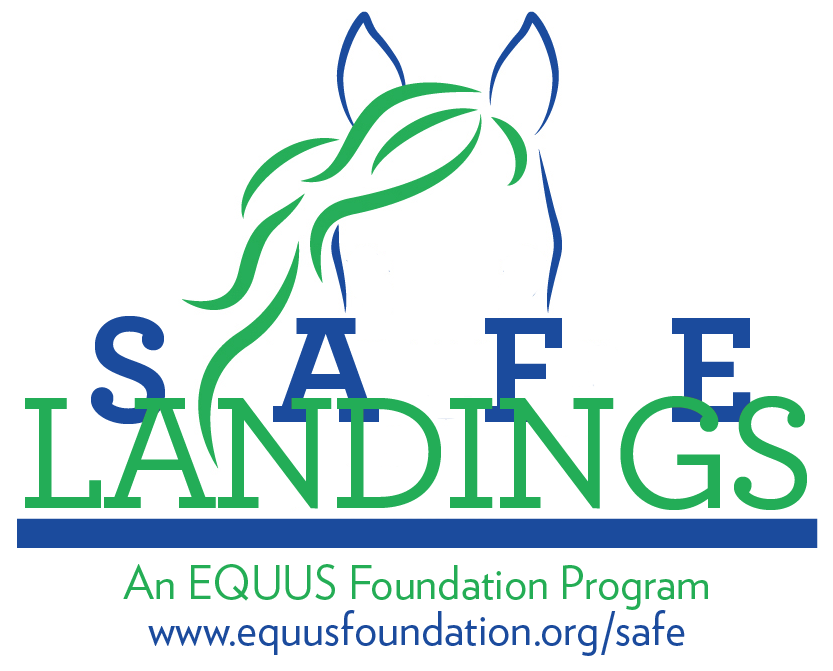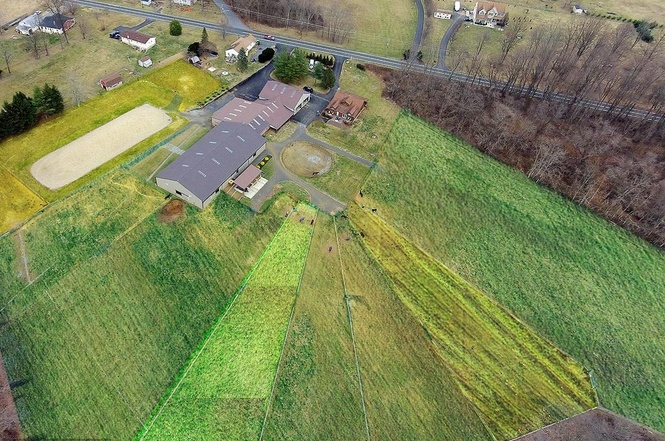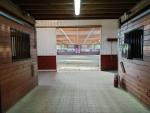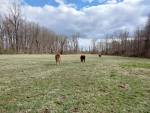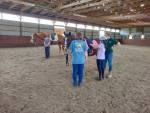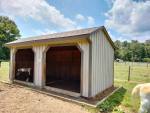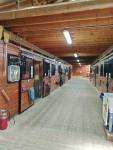Are we the next chapter for your horse?
Chesapeake Therapeutic Riding
Street, MD
Seeking a pony for mounted and unmounted activities
We are seeking a Pony that meets the following criteria:
Age Range:
Aged 6-9 Aged 10-14
Gender:
Geldings Mares
Size Preference:
Medium Pony (12.2 to 13.2h) Large Pony (13.3 to 14.2h) Small Horse (14.3 to 15.3h)
Activities that the equine will be expected to perform:
English Walk/Trot
English Walk/Trot/Canter
Horsemanship (grooming, tacking up & handling by individuals with disabilities)
Unmounted activities including handling when at liberty in a round pen or arena
Current/former experience/training which could make the equine suitable for your program:
English Pleasure
Other Experience/Training:
We would like desensitization training for the pony/small horse, so that they do not spook easily at strange sounds, or sudden movements around them.
The organization has the following policies about horses who are sound and healthy but have the following chronic conditions that require medication:
Lyme Disease: Accept with financial assistance for medication
Cushing's Disease: Accept with financial assistance for medication
Thyroid Disease: Accept with financial assistance for medication
Navicular Disease: Accept subject to severity of condition
Inflammation: Accept with financial assistance for medication
Location: The equine will be located at Serenity Hill Farm, 1136 Priestford Road, Street, MD 21154
Click on photo to view larger image
Close X
Total acreage dedicated specifically to the horses: 20
The organization has use of the following at this facility:
Structures/Barns: 1 Run-in sheds: 4
Pastures: 8 Paddocks/Pens/Turnout Areas: 0
Uncovered Outdoor Rings: 1 Covered Outdoor Rings: 0
Indoor Rings: 1
Horses have assigned stalls in the structure(s).
Horses are stalled for 1-3; hours per day, on average.
Horse Turn Out Practices:
Equines are out 24/7 except they are brought in to feed
Equines are out 24/7 except they are brought in if there is inclement weather
Equines are out 24/7 except when they are being trained
Equines are out 24/7 except when they are used for the conduct of the organization's programs
The following describes the pastures at this facility:
This facility has a written plan in place for pasture management, which includes guidelines for seeding, fertilizing, irrigation, mowing, dragging, harrowing, manure removal, removal of debris, the control of poisonous plants, and a schedule for cleaning
A dedicated staff person(s) is responsible for pasture management
All pastures are fenced to prevent escape or injury
Electric fencing is used; electric wires or tape fence are visibly marked
Fencing checks, such as broken or missing planks, loose fence posts, exposed or loose nails, detached wires, etc., are done regularly
Pastures are rotated
Pastures have natural protection for equines (i.e., trees)
Pastures have man-made protection for equines (i.e., shelters)
The following describes the turnout areas other than pastures at this facility:
This facility has a written plan in place for the maintenance of turnout areas, which includes a schedule for cleaning, manure removal, and dragging
A dedicated staff person(s) is responsible for the maintenance of turnout areas
All turnout areas are fenced to prevent escape or injury
Electric fencing is used; electric wires or tape fence are visibly marked
Turnout areas have man-made protection for equines (i.e., shelters)
Fencing checks, such as broken or missing planks, loose fence posts, exposed or loose nails, detached wires, etc., are done regularly
Horses have access to clean drinking water at all times
Hoof care is provided for each horse: Every 4-8 weeks and when an issue arises
Dental care is provided for each horse: Annually and when an issue arises
Each horse is visually and physically checked by personnel at the facility: Every day or 6 days a week
Close X
The organization requires the following with respect to the health status of the equine prior to acceptance and arrival at the organization:
A current Coggins
Vaccination records that have been administered within the last 12 months
If health records are not available or are out-of-date, the owner is responsible for having vaccinations administered.
If health records are not available or are out-of-date, our veterinarian will administer appropriate vaccinations
The organization has the following policies in place prior to an equine being accepted and/or arriving at the facility:
The owner of a potential equine is interviewed over the phone or in person prior to seeing the equine
The equine is evaluated at its place of residence
The owner completes an application/contract which constitutes the agreement between the owner and our organization
The owner is financially responsible for the shipping of the equine to and from the organization
Equines are on trial up to 60 days
Equines are on trial for 60 or more days
The trial period may be reduced based on the equine's progress
During the trial period, the owner/donor is financially responsible for the care of the equine, including board, feed, shoeing and any necessary veterinary care
The trial period may be terminated by either the organization or the owner for any reason
The organization assesses equines for following skills and behaviors:
Retrieval from a pasture/paddock
Leading with a halter and lead rope
Temperament, disposition and attitude, such as rated from very calm to very high spirited
Saddling
Bridling
Lunging
Loading onto and unloading off a trailer
Mounting and dismounting
Riding at the walk
Riding at the trot
Riding by a beginner and/or unbalanced rider
Tolerance to unusual objects and loud noises
Known vices, i.e., cribbing, biting, kicking, weaving, stall walking, etc
Grooming
Bathing
Tolerance to multiple handlers at the same time
Following arrival at the facility, the following is performed:
Physical examination by trained barn staff
Photographs are taken of each equine upon arrival at the facility and kept with the equine's health records
Physical examination by a farrier
Physical examination by a dentist
The equine is confined to a designated and separate area for isolation and quarantine at the facility for a prescribed period of time
Our organization has the following policies and procedures in place pertaining to the ongoing assessment of horses in its care:
The Henneke Body Condition score or other body conditioning score is updated at least annually
Photographs are taken of each equine annually and kept with the equine's health records
Equines at our facility may be treated by an equine massage therapist
Physical examination by a veterinarian at least annually
Horses provided formal training (groundwork or riding):
Weekly
Our organization has the following policies and procedures in place pertaining to the weight-carrying or workload capabilities of horses/equines that are ridden in our care:
Our organization evaluates at least annually and maintains a written record of the weight-carrying and workload limitations for each equine that is ridden
The following variables are considered in determining the weight-carrying and workload limitations for each equine that is ridden:
Equine age, weight, breed, body condition, fitness, balance, health and soundness
Participant weight, height, body proportions, balance, fitness and riding skills as well as behavioral issues and safety concerns
Weight and proper fit of the saddle and other equipment
Duration and frequency of working sessions, as the frequency with which an equine is subjected to maximum weight carrying and/or workload
Nature and pace of work, repetitive or varied, radius of turns, degree of incline and regularity of footing when equine is subject to maximum weight-carrying capacity
Temperature and/or weather conditions
Seasonal impact on the equines' workload and weight-carrying capabilities and limitations
The organization has the following policies related to breeding and stallions:
Our organization does not conduct breeding of equines owned or under the care of our organization.
Our main facility where our organization conducts its programs does NOT breed equines.
Close X
Rehoming
Our organization has the following re-homing (adoption/purchase) policies and procedures in place:
All potential adopters/purchasers complete a written contract which constitutes the agreement between our organization and the new owner
Our organization does NOT re-home an equine to first time equine owners
The agreement reflects that any individual or organization in possession of the equine as of the date of the agreement and any time thereafter is bound to not sell the equine at auction for slaughter or allow the equine to be sold, transferred, released, or otherwise placed into possession of any person or organization that will cause or allow the equine to be sold at auction for slaughter.
The agreement states that if there is any breach of contract the equine must be returned to our organization
The organization requires references from the following:
Veterinarian
Farrier
Personal/Other
Transfer of ownership occurs:
Immediately (at the time of adoption/purchase) or less than one year
has the following policies and procedures related to horses that need to be retired, are no longer able to contribute to the mission of the organization, and/or are no longer manageable:
Equines may remain at our organization for their lifetimes
Equines may be found suitable homes by our organization
Equines may be returned to their owners
In the case an equine is unsound and/or unhealthy and cannot be treated to relieve suffering, the equine may be euthanized upon the recommendation of the veterinarian
Additional information about rehoming policies and practices:
CTR homes an equine with the reasonable expectation that we can and will provide that animal a home for life on our farm. In rare circumstances, we may have to rehome an equine, and adopters must sign and follow our rehoming agreement.
View Re-homing Agreement
Close X
The organization has the following policies and procedures related to horses that need to be retired, are no longer able to contribute to the mission of the organization, and/or are no longer manageable:
Equines may remain at our organization for their lifetimes
Equines may be found suitable homes by our organization
Equines may be returned to their owners
In the case an equine is unsound and/or unhealthy and cannot be treated to relieve suffering, the equine may be euthanized upon the recommendation of the veterinarian
The organization has the following policies related to euthanasia:
Our organization will never have an equine euthanized for space
Our organization will have an equine euthanized upon the recommendation of the veterinarian if the equine is a threat to itself, other equines, or people
Our organization will have an equine euthanized upon the recommendation of the veterinarian after all reasonable treatment options have been explored
Euthanasia is done on site when possible to decrease trauma from transport
Disposal of the carcass is handled within 24 hours
The following are authorized to administer the procedure for the organization in accordance with state laws:
Veterinarian
Close X
Chesapeake Therapeutic Riding
1136 Priestford Road
Street MD 21154
443-528-7793
Last Updated 2024-06-22
Public Charity
Mission/How we are involved with horses:
Founded in 2003, Chesapeake Therapeutic Riding, Inc. (CTR), is a 501c3 non-profit that makes horses and equine assisted services accessible to children, adults, and veterans who live with disabilities and diagnoses. Our mission is to deliver healing and learning to individuals and groups whose minds, bodies and spirits will benefit from the transformative connection between people and horses. Our vision is to establish CTR as the premier equine-based therapeutic healing and learning center in the Mid-Atlantic Region.
Primary Focus involving horses
(Horse Welfare, Public Service, Sport & Recreation):
Public Service
The organization is directly responsible for the care and shelter of equines involved in the organization's programs.
The organization conducts Equine Assisted Services (EAS) in accordance with the EQUUS Foundation Guidelines on Qualifications of Organizations Conducting Equine-Assisted Services (EAS)). The organization provides community outreach and/or public education programs involving horses.
100% of our total programs and services are equine-related.
The organization conducts its horse-related programs at one facility.
|
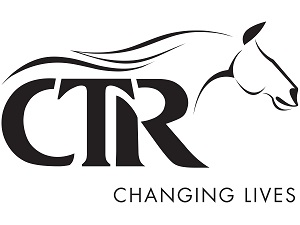
EIN: 26-0068227
Founded: 2003

2024
|
View our WEBSITE
View our GUIDESTAR PROFILE
View our EQUINE WELFARE NETWORK PROFILE
View our PHOTO GALLERY
9/2416/442

